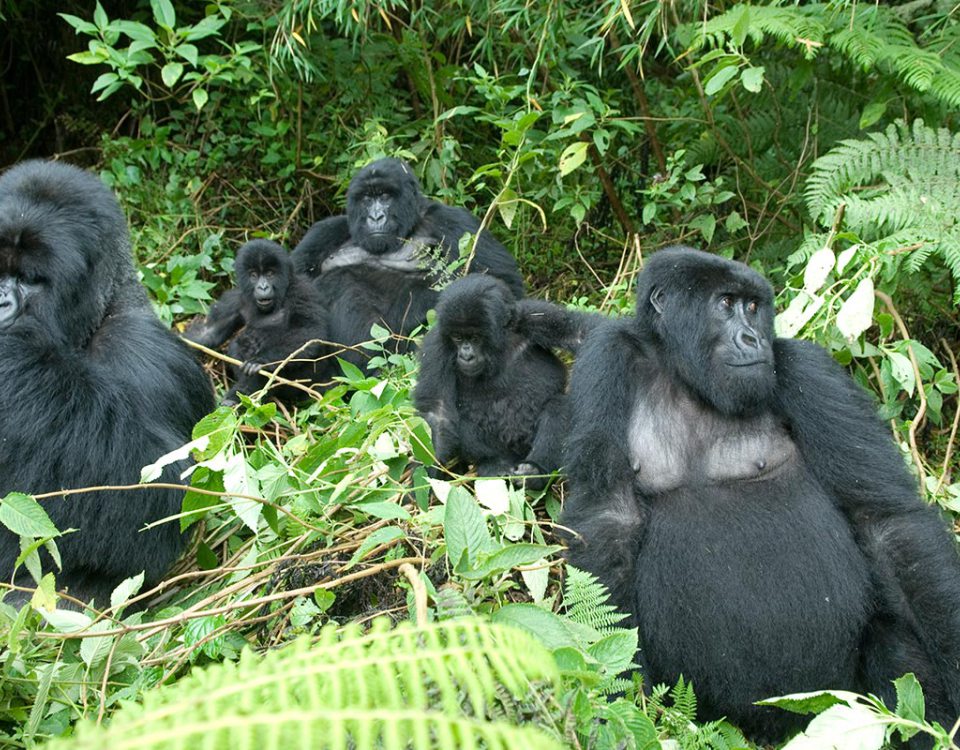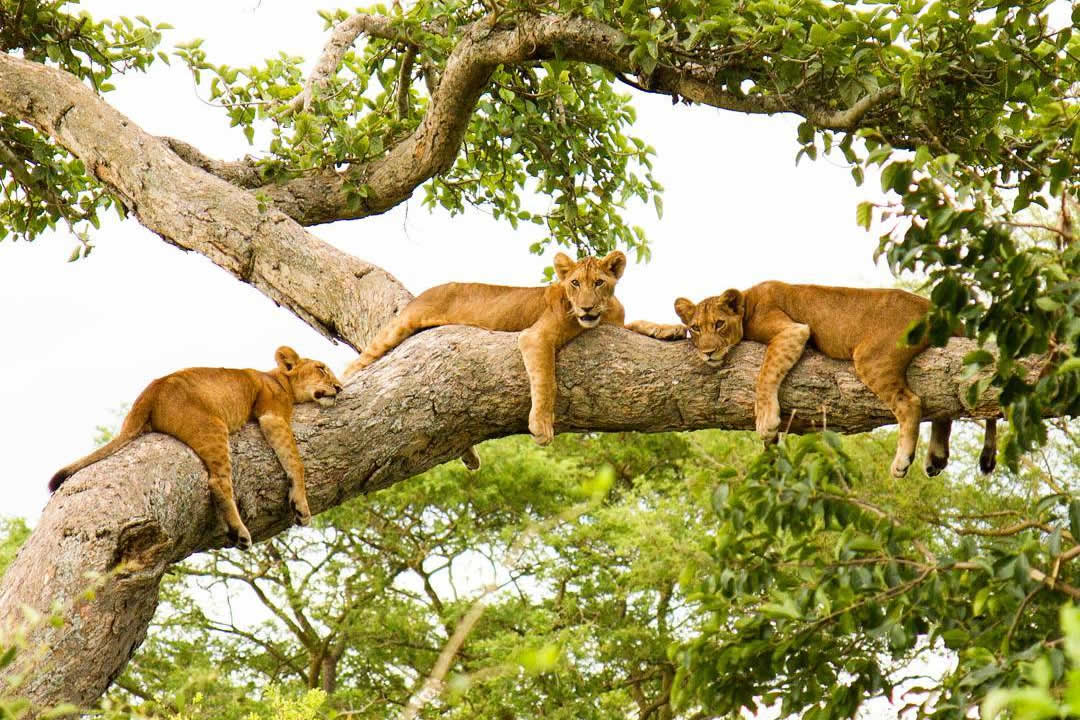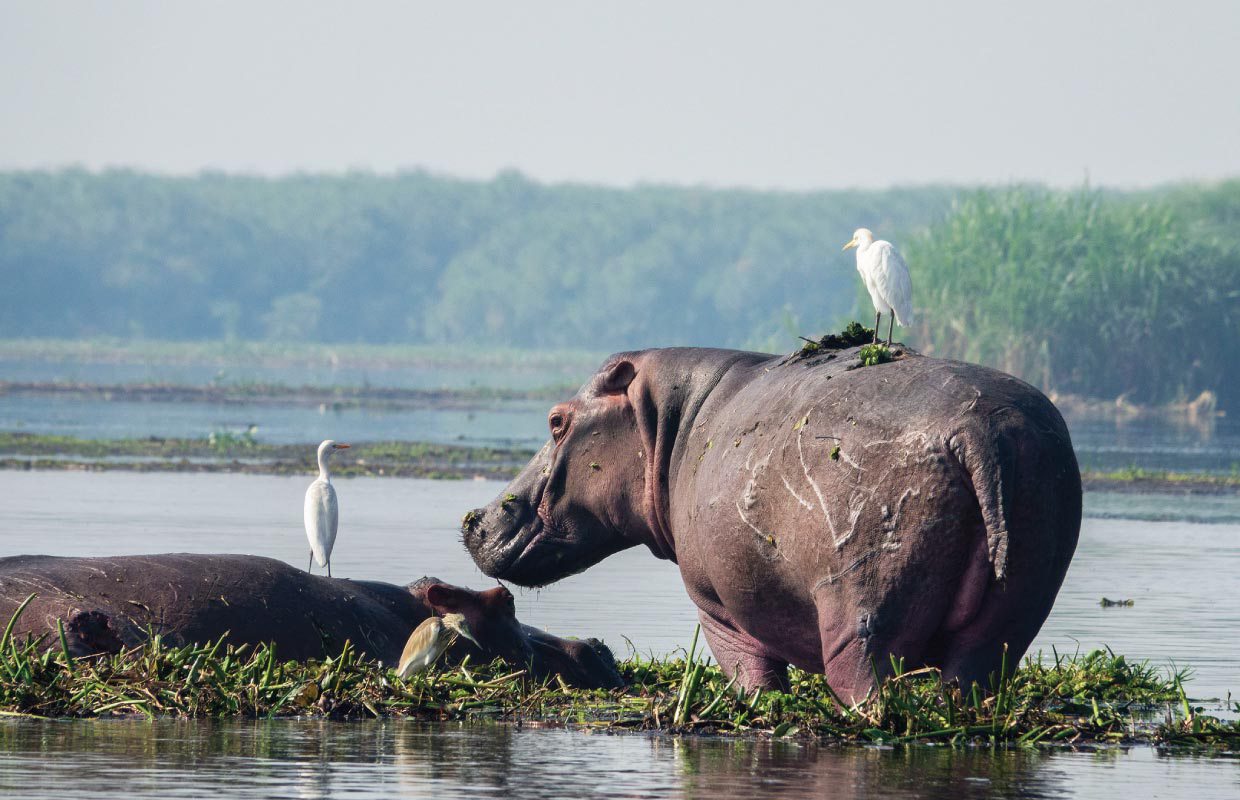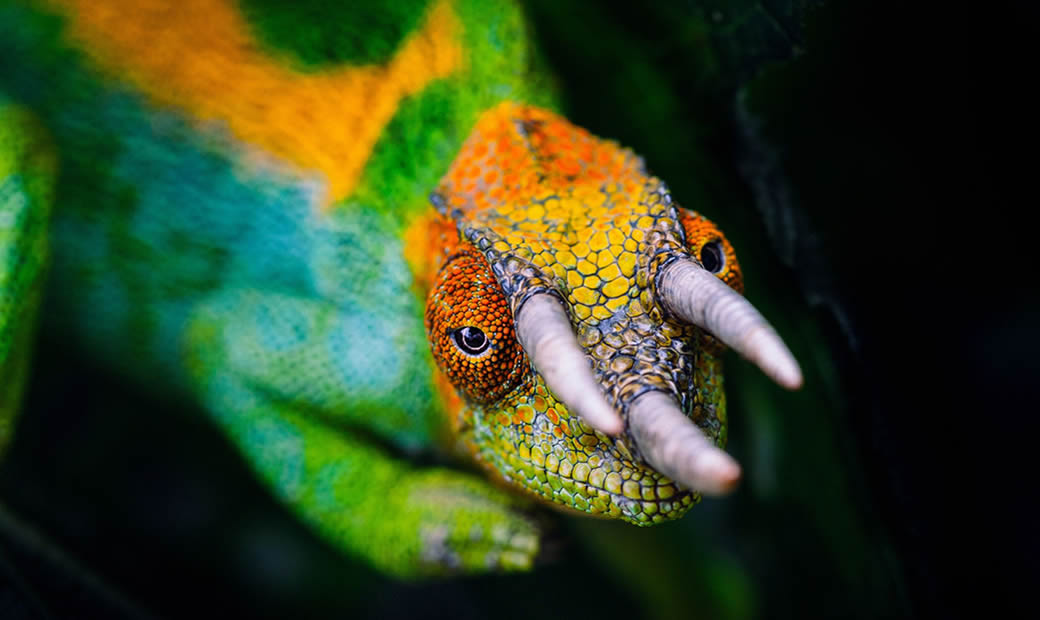Many tourists know Uganda as the pearl of Africa because of her natural beauty and unique wildlife attractions. The experience in this magical beautiful country cannot be best described by mere words since it’s far beyond pleasure and no specific words can explain it. Apart from the very welcoming and hospitable people, Uganda has a number of wildlife attractions that include some of the deadliest species on the planet, large mammals, calm and milder wild animals, colorful butterflies, jumpy primates especially monkeys and humans closest relatives the mountain gorillas and chimpanzees some of the prime tourist attractions in the country.
Outstanding Wildlife Species
Mountain Gorillas
These inhabit the thick jungles of Bwindi and Mgahinga gorilla parks located in southwestern Uganda. They are among the most endangered wildlife species on the planet with a population of about 900 mountain gorillas in three countries on earth that are Uganda, Rwanda and democratic republic of Congo.
Uganda has half of the 1000 mountain gorillas with 18 mountain gorilla families in Bwindi Impenetrable National Park and one in Mgahinga Gorilla National Park. Many tourists visit those two national parks with too much desire to meet their wild relatives, which they do with the help of tour guides who are well versed with forest and the major trails where a particular gorilla family can be.

The gorilla national parks in Uganda can be accessed by both road transport from Kampala through Masaka with an obvious stop at the equator and through the Kigezi region with gently sloping hills covered with vast plantations of bananas, tea and sometimes coffee. The journey takes about 7-8 hours but however long it may seem, its very rewarding as one prepares for the greatly anticipated gorilla-tracking day.
Each Mountain gorilla family in Uganda is tracked by a group of 8 tourists who are lead by guide. After getting to the allocated gorilla family, tourists are only given one hour to study the character of the gorillas as well as taking photographs. Touching, lifetime experience, mysterious, emotional are some of the words tourists use to describe the primate safari encounters with mountain gorillas in Uganda and therefore any one planning a trip there should include gorilla tracking on the must do list.
The Lions
They are among the most dangerous wild animals in the world that entirely depend on herbivores meat that they obtain by hunting them (herbivores) down. These fast and energetic mammals can be found in three major national parks in Uganda that include Murchison falls national park, queen Elizabeth national park and Kidepo valley national park and viewed by tourists on game drives. Most times, lions camouflage in the savanna bushes ready to take down their prey.

Lions are territorial and are always ready to fight hard against their intruders in order to protect their territories. The lions in queen Elizabeth national park are however very unique because of their tree climbing skills. They are located in the Ishasha sector and can be clearly seen hanging in trees branches resting.
The Hippos
They are the third largest land animals after elephants and rhinos. Large numbers of hippos in Uganda can be viewed along the Kazinga channel that connects lake Edward to lake George. Hippos are both land and water animals that spend most of their time in the shallow waters along riverbanks and leave the water to go on land for grazing.

Kazinga channel has the highest hippo concentration in Uganda and east Africa at large all thanks to the fresh pastures along the riverbanks. Tourists on water launches along the channel can view them. While on a water trip along the Kazinga channel, a tourist has greater chances of viewing many other wild animals like crocodiles, elephants and even lions that usually come to drink water. Other areas with hippos in Uganda include Murchison falls national bank where they can be viewed in the shallow waters of the Nile riverbanks, Semuliki national park where they live on the riverbanks of river Semuliki as well as lake Mburo national park.
The Three-Horned Chameleon
This is also known as the Johnston’s chameleon located in Rwenzori national park in western Uganda. This chameleon is unique because of its three major horns clearly seen on its fore head. The horns are used for attacking and defending its self from any intruders in his territory or when fighting for the right over females.

The three-horned chameleon is a male Johnston’s chameleon that mainly feeds on smaller insects, grasshoppers, and cockroaches that it usually taps using its sticky and elastic long tongue. This chameleon is however hunted by birds for prey but most times escapes becoming their meal using its very tactical and rare changing color technique.
The above-mentioned wildlife species are not the only ones a tourist can view while on a Uganda safari. Uganda has many other wildlife species that include forest elephants, cape buffaloes, giant forest hogs, leopards, impalas, rhinos, sitatungas, warthogs plus various bird species that include the rare shoebill stork, African fish eagles, king fishers, grey crowned cranes, marabou storks, egrets that can be viewed around various swampy areas, lakes, rivers and forests.
Uganda has a number of forests that are homes to a number of primates that mainly include chimpanzees, baboons, monkeys for example colobus and l’hoest monkeys viewed by tourists on primate tracking trails especially in Kibale forest national park, Mabira forest reserve located along kampala – Jinja highway and Kaniyo Pabidi forest reserve located in Masindi district. All the above-mentioned wildlife species can be viewed by tourists on game drives, nature walks, hiking, water trips providing a full satisfying tourist experience.

